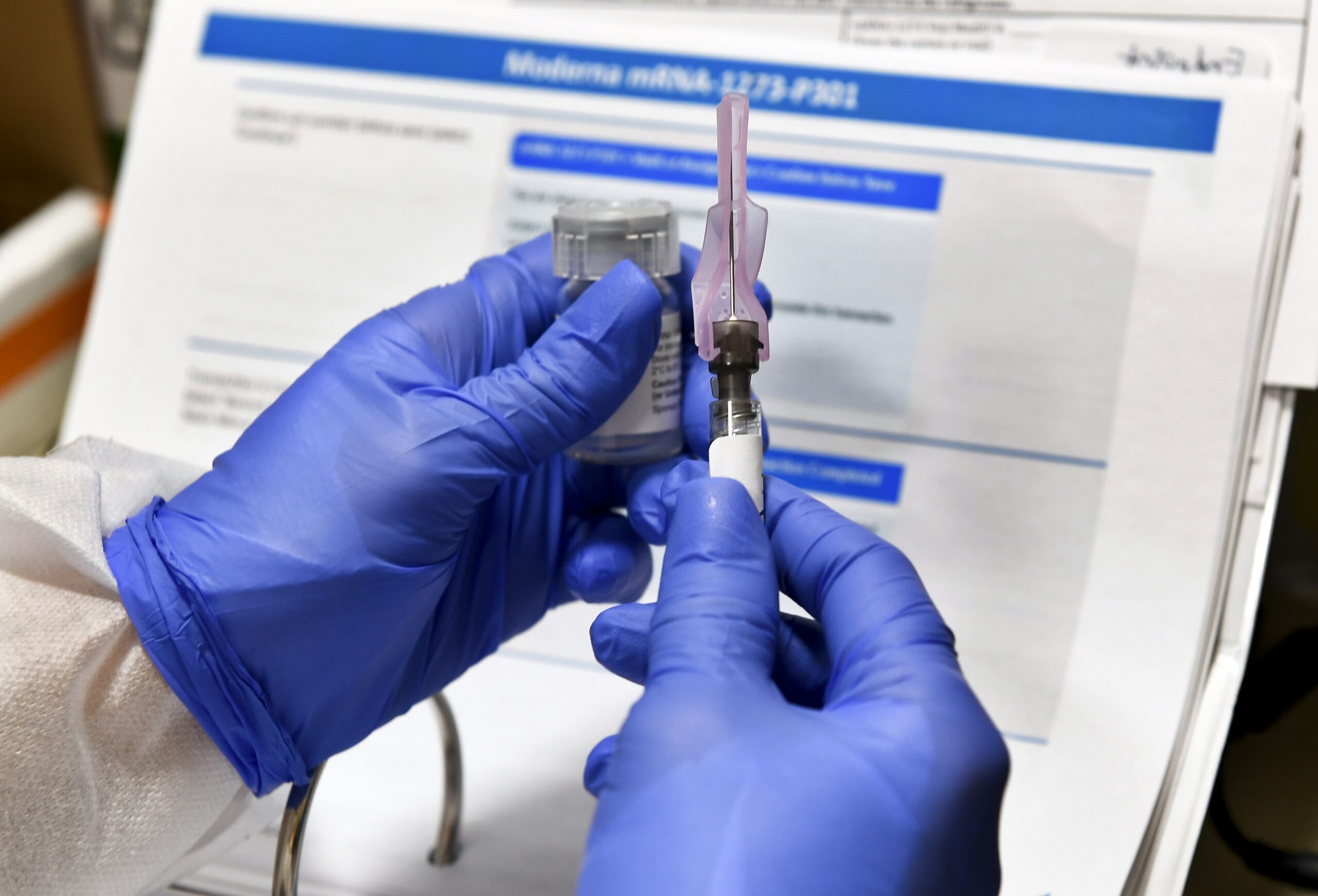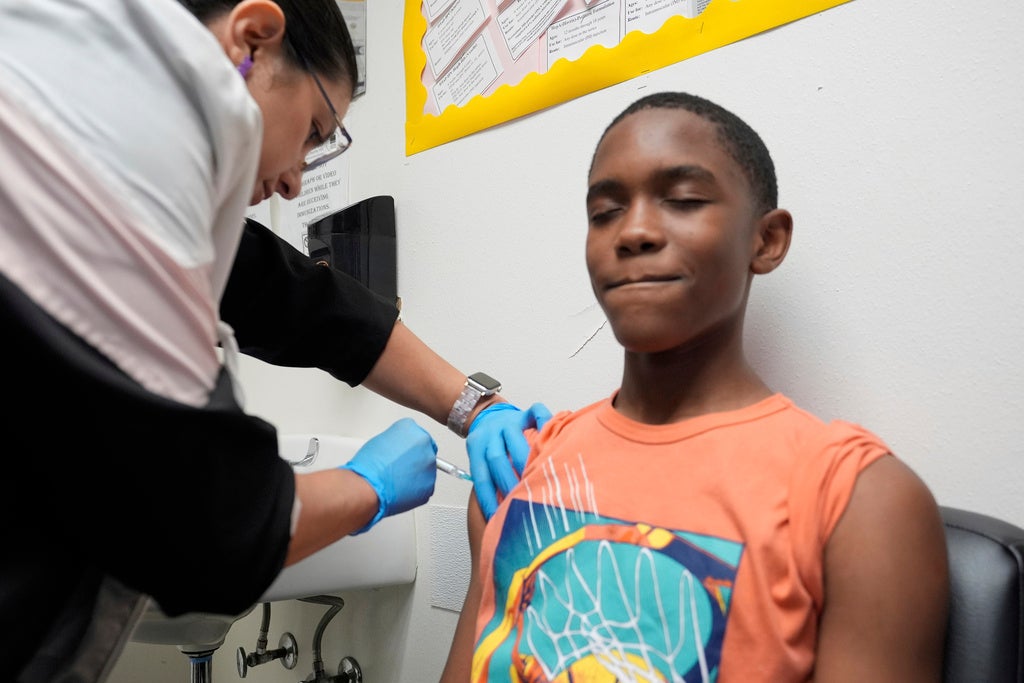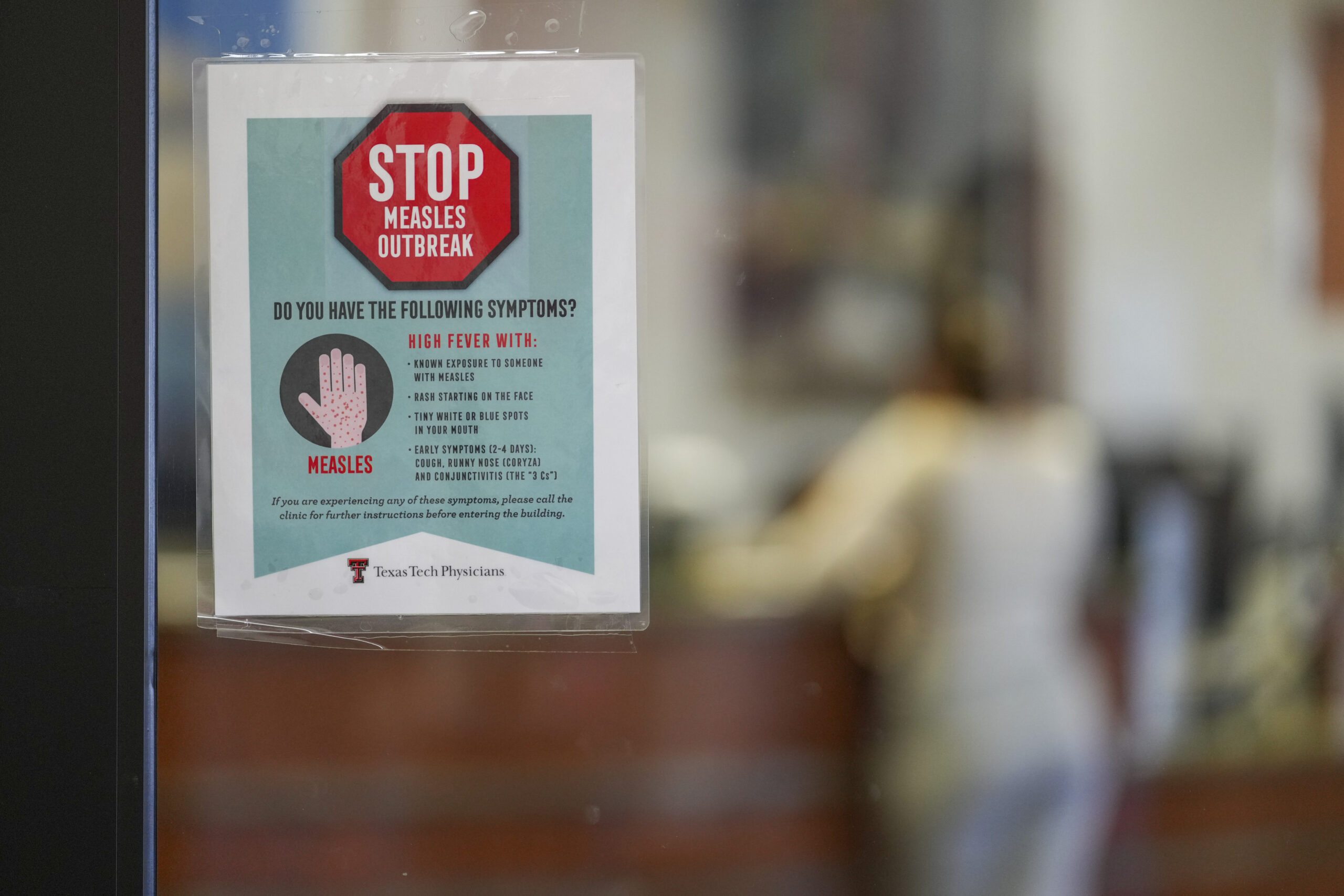Vaccines to protect against COVID-19 are getting closer to possible federal approval, and state health officials are deciding who will get a limited supply of initial doses and how to distribute it.
State and federal advisory committees will meet separately on Tuesday to discuss the next steps in getting a coronavirus vaccine to those most at risk, such as health care workers in hospitals and nursing homes along with patients in such settings.
Paul Grabow is a registered nurse at the Wisconsin Veteran’s Home at King. His spouse, Pearl, also works there as a nursing assistant.
News with a little more humanity
WPR’s “Wisconsin Today” newsletter keeps you connected to the state you love without feeling overwhelmed. No paywall. No agenda. No corporate filter.
“My wife and I will get the vaccine as soon as we can possibly get it,” said Paul, who has watched several of his patients at the nursing home die of the disease.
Two vaccine makers, Pfizer and Moderna, have applied for emergency use authorization from the federal government, adding urgency to preparations underway in Wisconsin and other states.
“The pace at which they did this was absolutely phenomenal and that took international collaboration,” said Lisa Johnson, head of the biopharmaceutical group BioForward Wisconsin.
Even if regulators at the U.S. Food and Drug Administration approve vaccines by those and other manufacturers, there are still big challenges facing states, including storage for the Pfizer vaccine, which needs subarctic temperatures to remain stable.
“Wisconsin manufacturers of dry ice are very aware of this and have been in touch with us,” said Wisconsin Department of Health Services Deputy Secretary Julie Willems Van Dijk during a Nov. 17 press briefing. “So, I think it’s a great example of public-private partnership, how people across the state are coming together to assure that we have everything we need to get vaccine to all parts of the state.”
With proper planning, state officials say even vaccines requiring extra cold storage could be used in places that don’t have special freezers. Dry ice can maintain a vaccine for up to 15 days and it will last if refrigerated for up to 120 hours, said Stephanie Schauer, who directs the Wisconsin Immunization Program for the Department of Health Services.
Wisconsin has received $3.1 million from the federal government for coronavirus vaccination efforts. Some of that money has been used to support local and tribal health departments, but Willems Van Dijk says the state will need additional money.
The number of doses of each vaccine a state gets will be determined by population. Initially, the vaccines will have to be rationed until enough is produced for all those who want it, according to health officials.
Wisconsin Public Radio, © Copyright 2026, Board of Regents of the University of Wisconsin System and Wisconsin Educational Communications Board.





